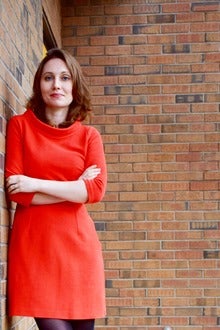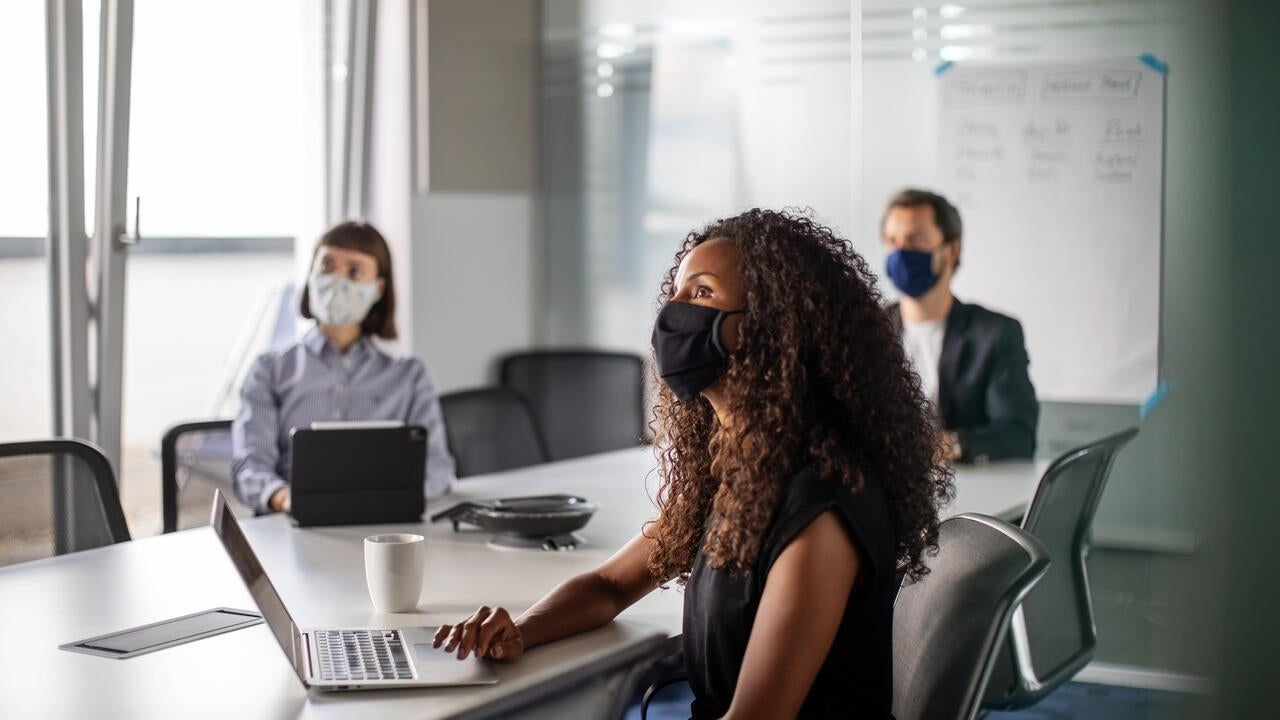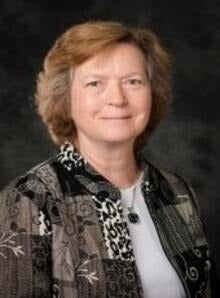Editor:
Brandon Sweet
University Communications
bulletin@uwaterloo.ca
Q and A with the experts: Vivek Goel on the spread of Omicron

The University of Waterloo has a number of experts available to speak about issues relating to COVID-19.
Before becoming the President and Vice-Chancellor of the University of Waterloo last year, Vivek Goel supported Canada’s response to the pandemic as a member of the Federal COVID-19 Immunity Task Force. He also served as scientific advisor for the CanCOVID Network, which is a national network of researchers in the areas of health, science and policy created to promote collaboration on COVID-19 research. As we face Omicron, the latest variant of concern, Dr. Goel discusses the ways it has changed the pandemic, its impact on society, and what to do about it.
We hear Omicron isn’t as severe or as deadly as previous variants, but there has been explosive growth in hospitalization. Can you help us make sense of that?
I think it’s important to think about the impact of the virus as opposed to the severity of the virus. The impact of the virus on the population is driven by a number of factors. One of them is how fast it goes from one person to the next, how transmissible it is. The second is how bad the disease hits each person it infects—the virulence of the virus—and the degree of protection each individual has from either getting the disease and/or the severity of the disease if they do get it, and that's their prior immunity.
And so, when we talk about comparing Omicron to the Delta variant, or the Alpha variant before that, or the original wild-type variant, which was first detected in Wuhan, you can’t just say: “Is it more severe or not?” because it's comparing all these different characteristics at once. And the evidence is still evolving.
What we do know is that the impact of this particular variant, the Omicron variant, is less than the impact of Delta at the individual level. But that is in large part because of the prior immunity that our population has. And there is some evidence to suggest that the virulence of the virus—the degree of disease that it causes in people who are infected—is also less than that of the Delta variant, the one that just came immediately before. But the amount of that is still being established. There are some people who are saying that the virulence is probably still about the same as the original wild-type variant.
What is different about Omicron?
Where the Omicron variant clearly has as an advantage is its transmissibility. Each person it infects is going to infect many more people. And again, the numbers vary, but it’s probably about at least two to three times more than Delta, and two to three times Delta was two to three or more times than Alpha. And Alpha was more than the original.
So, it’s many times more transmissible than the original virus that we saw back in late 2019, and that spread around the world in the beginning of 2020, and probably causes about the same severity of disease in each person that it infects. If we can think back to the early days, when it was first appearing in Italy or New York, and we saw ICUs being overrun, if we had had this virus back then we would have had total devastation throughout the world because it is many times more transmissible but can still cause severe disease in those that don’t have prior immunity.
The reason we're talking about it having less severity, or being “mild”, is because since the beginning of 2020, we have started to build up population immunity, and it's built up in two ways. One, people have become infected with the disease. And we've got the vaccines, allowing people to be protected against infection to a certain degree. But more importantly, vaccines have allowed people to be protected from having really bad consequences if they do get infected.
What we're seeing with Omicron is the vaccines are less protective against infection with Omicron than they were for Delta and the earlier variants. But they still protect against being hospitalized or needing to go into the ICU and go onto a ventilator, and they protect against death. What's happening right now is we're seeing a very rapid spread of this particular variant because the prior immunity, either from disease or from the vaccines, does not protect to the same degree against the transmission.
So we're seeing the cases in vaccinated people, but we're not seeing vaccinated people being hospitalized at the same rate, or needing intensive care, or having the unfortunate consequence of passing away. That's why we can wind up with a situation where we'll have a headline saying, ‘It's not as severe, it's not as deadly.’ That's in large part because of this prior immunity that we've built up, especially from vaccines.
What does this all mean on a larger scale?
Even if we believe it is “mild”, it's still having devastating consequences for us as a society. And that's because of a couple of things. One, because it is spreading as a disease and even in vaccinated populations, it is spreading to many people all at the same time. That results in a lot of absenteeism, either because people have been infected, or because they've been exposed and they're asked to go into isolation as a result of that.
The other consequence for the health system is that because it’s infecting so many people all at once, there's still going to be a certain proportion hospitalized. And even if that proportion is very small, a fraction of one per cent, when you have millions of people infected at the same time, that very small percentage multiplied by that many people at the same time, results in a lot of people having to go to hospital.
The final thing I’ll just say on this is we still have 10 to 15 per cent of people who haven't been vaccinated or haven't had their two doses. There's a certain fraction of those that are children under five, for whom we still don't have vaccines approved, and the children five to 11, for whom the vaccine was just approved a few months ago, and so they’re still in the process of getting vaccinated.
So, again, Omicron spreading into that population is going to result in a higher rate of hospitalization, because even though COVID has been generally milder in children, as it starts to spread so fast, there are just going to be so many children being infected at the same time, we will start to see hospitalizations rise in that population. And then we have adults who have not been fully vaccinated. Unfortunately, what we are seeing in our hospitals right now is the vast majority of people being hospitalized and almost all the people needing to be in intensive care and having to have ventilators are the unvaccinated.
What can members of our community do?
Make sure you continue to follow public-health precautions. Over these next few weeks, we do need to hunker down and limit our daily contacts so we reduce the amount of transmission. We need to ensure we don't further overwhelm our health-care system and that we're able to maintain our essential services. Everyone needs to do their part, wearing appropriate masks, staying home if they're symptomatic or told that they're going into isolation, and getting whatever dose of vaccination they're eligible for as soon as they can.
This interview has been edited and condensed from a special episode of the Beyond the Bulletin podcast.
IST's annual report - a year in review

A message from Bruce Campbell, Chief Information Officer.
I am pleased to share the work and achievements of Information Systems & Technology in our 2021 Annual Report. The demands and expectations of many IST services continued to increase over the past year as the University community adapted to ongoing changes to work and learning restrictions influenced by COVID-19.
The main articles that follow highlight some of the work accomplished to continue to support these distributed, remote environments, as well as enhance the delivery and support of many centrally managed IT services. Additional accomplishments are noted under the Other accomplishments section, while planned initiatives and areas of focus are noted on the Upcoming initiatives page for 2022.
Visit the IST Annual Report site at https://uwaterloo.ca/ist-annual-report.
Two Waterloo professors among ranks of Canada Research Chairs
Two University of Waterloo researchers have been named new or renewing Canada Research Chairs (CRC). The Honourable François-Philippe Champagne, Minister of Innovation, Science and Industry (ISED) made the announcement of Canada Research Chairs earlier this week.

Associate Professor, English Language and Literature
Canada Research Chair in Science, Health and Technology Communication
SSHRC Tier 2 (New): $500,000 over five years (plus a $100,000 research stipend and an additional $30,000 through the Canada Foundation for Innovation's John R. Evans Leaders Fund)

James Craig
Professor, Civil and Environmental Engineering
Canada Research Chair in Canada Research Chair in Hydrological Modelling and Analysis
NSERC Tier 2 (Renewal): $500,000 over five years
Congratulations to both Professor Mehlenbacher and Professor Craig.
Continuous Improvement and Change Management session coming up

A message from Human Resources.
The next Continuous Improvement and Change Management Community of Practice (CI and CM CoP) session entitled “Brainstorming - how to generate ideas to solve business problems” will take place on Thursday January 27, 2022 from 9:00 am to 10:00 am.

Please join us as the University of Waterloo welcomes Dr. Ruth Archer, Director of Continuous Improvement, at Michigan Technological University who will walk us through over half a dozen unique brainstorming techniques and their application to solve business and process challenges. Participants will have the opportunity to participate in several brainstorming techniques to assist in putting them into practice.
Questions? Please contact Kim Snage, Director, HR Projects, Technology & Analytics, or Samantha Murray, change management advisor.
Photo of Professor Arthur courtesy of Michigan Technological University.
Donation establishes Foundation for Palestinian Studies Fund

This article was originally published on the Faculty of Arts website.
The Faculty of Arts is pleased to partner on a new fundraising initiative in support of research and learning focused on Palestinian peace-building, conflict avoidance, co-existence and cultural understanding.
The partnership is championed by Mr. Shawky Fahel a Palestinian-Canadian living in Waterloo region who has been involved in several efforts with governments and other organizations to work toward a peaceful and just solution to the Israeli-Palestinian conflict. As a founding donor to the fund, Fahel has contributed $100,000 toward a public lecture series for which the first event will honour Waterloo’s past-president Feridun Hamdullahpur. Fahel is also committing his time and energy to national and international fundraising in support of future Palestinian studies programming at Waterloo.
Palestine has long been the site of rich inter-cultural, religious, economic, and political exchange as well as conflicts. Today, it presents the international community with some of the most difficult social and political challenges. Palestinians form a diverse and dynamic diaspora that includes one of the largest refugee populations in the world. While conflict and violence often bring global attention to the Palestinian experience, headlines often miss the crucial activities of Jewish, Israeli, and Palestinian human rights workers, peace and justice organisations, as well as the rich and complex body of scholarly, artistic, literary, creative, and popular works of the diaspora.
For Fahel, the greatest impact of this initiative will be driven by education: “Understanding begins with education and awareness. Changing minds can change the course of history.”
Grounded in the ethos of the University of Waterloo, the goal is to contribute to real change by promoting mutual respect and insight on cultures that are often misunderstood in the West, and by exploring potential solutions for thorny and entrenched problems.
Along with the lecture series, the new fund will facilitate study abroad trips to the Palestine-Israel region, research awards, and post-doctoral fellowships.
“By drawing into conversation scholars, political and community leaders, entrepreneurs, artists, and public intellectuals, we have the potential to offer our students rare opportunities to engage in real-world problem-solving initiatives and transformative scholarship,” says Professor Jasmin Habib from the Department of Political Science, who is an expert in Palestine-Israel.
Sheila Ager, Dean of Arts, looks forward to the collaboration between donors such as Shawky Fahel and university colleagues to promote conversations and understanding. “I’m proud of the multidisciplinary expertise and capacity for social impact that the Faculty of Arts can contribute to this important work toward peace. It is a long game, but a very worthwhile one.”
Photo by Kamel Satel, courtesy of Shawky Fahel.
Beyond the Bulletin Episode 114

The latest episode of the Beyond the Bulletin Podcast is now live. Geoff Fong, a professor in the Department of Psychology and the School of Public Health Sciences, is founder and chief principal investigator of the International Tobacco Control Policy Evaluation Project. It’s the first-ever international cohort study of tobacco use, and he discusses its role in helping prevent smoking-related deaths worldwide. University leaders continue to monitor the effects of Omicron on healthcare and the local and campus communities. The University streamlines the performance-appraisal process. And Human Resources announces changes to benefits.
Link of the day
When and Where to get support
Students can visit the Student Success Office online for supports including academic development, international student resources, immigration consulting, leadership development, exchange and study abroad, and opportunities to get involved.
Finance and Student Financial Services will be closed to in-person service in EC5 until further notice. Students, please visit the Centre in Needles Hall or contact Student Financial Services at the helpdesk.
Instructors looking for targeted support for developing online components for blended learning courses, transitioning remote to fully online courses, revising current online courses, and more please visit Agile Development | Centre for Extended Learning | University of Waterloo (uwaterloo.ca).
Instructors can visit the Keep Learning website to get support on adapting their teaching and learning plans for an online environment.
Course templates are available within your course in LEARN to help you build and edit your content and assignment pages quickly.
The following workshops, webinars, and events are offered by the KL team (CTE, CEL, ITMS, LIB):
- Independent Remote Course Design Essentials, self-directed, continuous self-enrollment course in LEARN.
- Independent Blended Course Design (iBlend), self-directed, ongoing
- Copyright Overview for Waterloo Instructors and Staff - self-directed, continuous self-enrollment course in LEARN.
Employees can access resources to help them work remotely, including managing University records and privacy of personal information. Here are some tips for staying healthy while working from home.
Stay informed about COVID cases on campus by consulting the COVID case tracker.
The Writing and Communication Centre has virtual services and programs to help undergrads, grad students, postdocs and faculty members with academic writing.
- Meet with writing advisors in one-to-one appointments to brainstorm, draft, revise, and polish. No time for an appointment? Try email tutoring for undergrads.
- Beat isolation and make writing progress at weekly Virtual Writing Cafés for grad students and faculty or PJ-Friendly Writing Groups for Undergrads.
- Take an online workshop or apply to our popular Dissertation Boot Camp program.
- Faculty can request custom in-class workshops for their courses, or the WCC can facilitate any existing workshops for student groups.
- Course-integrated support available. Attention faculty and instructors: The application form for Writing and Communication Centre course-integrated support is now available online. We offer five unique support streams for your courses including synchronous and asynchronous workshops and monitored discussion boards.
Co-op students can get help finding a job and find supports to successfully work remotely, develop new skills, access wellness and career information, and contact a co-op or career advisor.
The Centre for Career Action (CCA) is currently offering virtual services only. Questions about CCA's services? Live chat or call 519-888-4047 between 8:30 a.m. and 4:30 p.m. EST, Monday to Friday.
Drop-in to Warrior Virtual Study Halls on Wednesdays from 5:30 p.m. to 7:00 p.m. Come together in this virtual space to set goals and work independently or in groups each week.
Renison's English Language Institute continues to offer virtual events and workshops to help students practice their English language skills.
If you feel overwhelmed or anxious and need to talk to somebody, please contact the University’s Campus Wellness services, either Health Services or Counselling Services. You can also contact the University's Centre for Mental Health Research and Treatment. Good2Talk is a post-secondary student helpline available to all students.
The Library will continue to focus on digital resources and consultations as we start winter term with classes primarily online, though spaces will be open for drop-in individual study space, bookable individual study rooms, drop-in access to computers and printers, book pick-up services and IST Help Desk support. Special Collections & Archives and the Geospatial Centre will be accessible by appointment. Full details on current services and hours are available on the Library’s COVID-19 Update webpage.
The Faculty Association of the University of Waterloo (FAUW) continues to advocate for its members. Check out the FAUW blog for more information.
The University of Waterloo Staff Association (UWSA) continues to advocate for its members. Check out the UWSA blog for more information.
The Sexual Violence Prevention and Response Office (SVPRO) supports all members of the University of Waterloo campus community who have experienced, or been impacted, by sexual violence. This includes all students, staff, faculty and visitors on the main campus, the satellite campuses, and at the affiliated and federated Waterloo Institutes and Colleges. For support, email: svpro@uwaterloo.ca or visit the SVPRO website.
The Office of Indigenous Relations is a central hub that provides guidance, support, and resources to all Indigenous and non-Indigenous campus community members and oversees the University's Indigenization strategy.
The Waterloo Indigenous Student Centre, based at St. Paul’s University College, provides support and resources for Indigenous students, and educational outreach programs for the broader community, including lectures, and events.
WUSA supports for students:
Peer support - MATES, Glow Centre, RAISE, Women’s Centre - Visit https://wusa.ca/peersupport to book an appointment either in person or online for the Fall term.
Food Support Service food hampers are currently available from the Turnkey Desk 24/7 in the Student Life Centre. Drop off locations are also open again in SLC, DC, DP, SCH and all residences.
Co-op Connection all available online. Check https://wusa.ca for more details.
Centre for Academic Policy Support - CAPS is here to assist Waterloo undergraduates throughout their experience in navigating academic policy in the instances of filing petitions, grievances and appeals. Please contact them at caps@wusa.ca. More information is available.
WUSA Student Legal Protection Program- Seeking legal counsel can be intimidating, especially if it’s your first time facing a legal issue. The legal assistance helpline provides quick access to legal advice in any area of law, including criminal. Just call 1-833-202-4571.
Empower Me is a confidential mental health and wellness service that connects students with qualified counsellors 24/7. They can be reached at 1-833-628-5589.
GSA-UW supports for graduate students:
The Graduate Student Association (GSA-UW) supports students’ academic and social experience and promotes their well-being.
Advising and Support - The GSA advises graduate students experiencing challenges and can help with navigating university policies & filing a grievance, appeal, or petition.
Mental Health covered by the Health Plan - The GSA Health Plan now has an 80 per cent coverage rate (up to $800/year) for Mental Health Practitioners. Your plan includes coverage for psychologists, registered social workers, psychotherapists, and clinical counsellors.
Dental Care - The GSA Dental Plan covers 60 per cent to 70 per cent of your dental costs and by visiting dental professionals who are members of the Studentcare Networks, you can receive an additional 20 per cent to 30 per cent coverage.
Student Legal Protection Program - Your GSA fees give you access to unlimited legal advice, accessible via a toll-free helpline: +1-833-202-4571. This advice covers topics including housing disputes, employment disputes, and disputes with an academic institution.
The Graduate House: Open Monday to Friday 11:30 a.m. - 6:00 p.m. The Graduate House is an essential component of graduate student life, and we're working hard to make it available to students. The quality food with local ingredients you love is available for takeaway. And graduate students who paid their fees can still get discounts and free coffee.
BIPOC Student Collective - The Collective is a safe space for BIPOC LGBTQ2+ students and aims to foster intergenerational and peer-to-peer support and mentorship. Join the online Discord channel for solidary chats and drop-in sessions.
When and Where (but mostly when)
Warriors vs. Laurier Blood Donation Battle. Join our “Waterloo Warriors” team on the Blood.ca website or app. #ItsInYouToGive
Healthy Warriors at Home, free online programs including Nutrition Guides, Personal Training Consults, Health Webinars, Mindfulness Courses and On-demand Fitness. Sign up now.
Warrior Rec Live Fitness Classes, free classes Monday to Thursday with a valid Warrior Rec membership. Barre, Yoga, Zumba, Warrior Workout, Boxing and more. Register now.
Master of Taxation, Virtual Information Session, Friday, January 14, 9:00 a.m. To register visit www.mtax.ca.
Professional Development Advisory Group (PDAG) seminar featuring Terry Labach, "Because That’s Where the Money is: Ransomware as a Growth Industry," Friday, January 14, 9:00 a.m. to 9:45 a.m., Microsoft Teams. Visit the PDAG seminar page for upcoming events.
University Senate meeting, Monday, January 17, 3:30 p.m., Microsoft Teams.
Quantum Nano Collision Seminar Series: Professor Kevin Musselman, Wednesday, January 19, 4:00 p.m. to 5:00 p.m.
CrySP Speaker Series on Privacy featuring Sarah Lamdan, CUNY School of Law, “Data Analytics Companies in Academia,” Wednesday, January 19, 1:30 p.m., on Zoom.
WaterTalk: Harnessing 'Omics to Inform Strategies to Mitigate the Spread of Antimicrobial Resistance as a One Water Challenge, presented by Amy Pruden, Thursday, January 20, 10:30 a.m.
GreenHouse Transportation Hack for Health, Friday, January 21 to Saturday, January 22, Virtual Event and Pitch Competition, details and registration information can be found on the event page.
WaterLeadership: Media 101 - Tips for Engaging with the Media, presented by Pamela Smyth. Tuesday, January 25, 1:00 p.m.